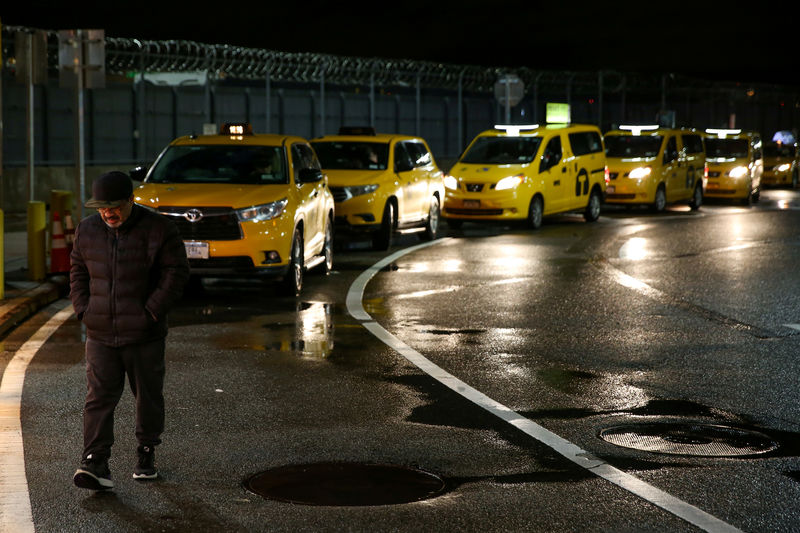By Tina Bellon
NEW YORK (Reuters) - Passengers commuting to or from Newark Liberty, LaGuardia and John F. Kennedy airports by taxi or ride-hail service will have to pay additional fees beginning in October 2020, the Port Authority of New York and New Jersey said on Thursday.
The fees will hit ride-hail companies such as Uber Technologies (NYSE:UBER) Inc and Lyft Inc (NASDAQ:LYFT) harder than the city's traditional taxi industry, which for years has called on regulators to rein in the app-based competitors.
According to the new rules, taxi riders will be charged $1.25 per airport pick-up from next October, increasing to $1.75 in 2022.
Individual app-based rides with Uber and Lyft will be taxed $2.50 for rides both originating and ending at an airport.
Pooled or shared rides, in which multiple passengers are picked up along the route, will be charged $1.25 for each pick-up and drop-off. Lyft and Uber both offer pool options to their customers, a segment in which they have competition from Via, a New York-based company specializing in shared rides.
The decision comes just months after New York City implemented a congestion surcharge and passed additional regulations aimed at boosting ride-hail drivers' pay and easing congestion in central Manhattan.
Thursday's airport fee approval puts the region on par with the rest of the country, where most large airport operators charge pickup fees for taxis and ride-shares.
The Port Authority, in its public agenda for Thursday's meeting, said the fees were necessary to upgrade rail and airport infrastructure, including the construction of a new terminal at Newark.
"More than virtually anywhere else in the United States, the shared prosperity and continued vitality of the New York/New Jersey region depends on our public transportation infrastructure functioning, and functioning well," the Authority said.
Uber on Thursday said the fee structure will have a disproportionate negative impact on New Yorkers who do not live in central Manhattan and do not have easy access to taxicabs.
"We support the Port Authority's goal of improving the customer experience, but are disappointed that they've decided to punish Uber riders by charging them three times more in fees than taxis round trip," the company said in a statement.
Lyft did not immediately respond to a request for comment.
Ride-share company Via welcomed the distinction between pooled and private vehicles, saying in a statement that incentivizing multi-passenger rides over single-occupancy vehicles was in line with New York's and New Jersey's ambitious climate goals.
